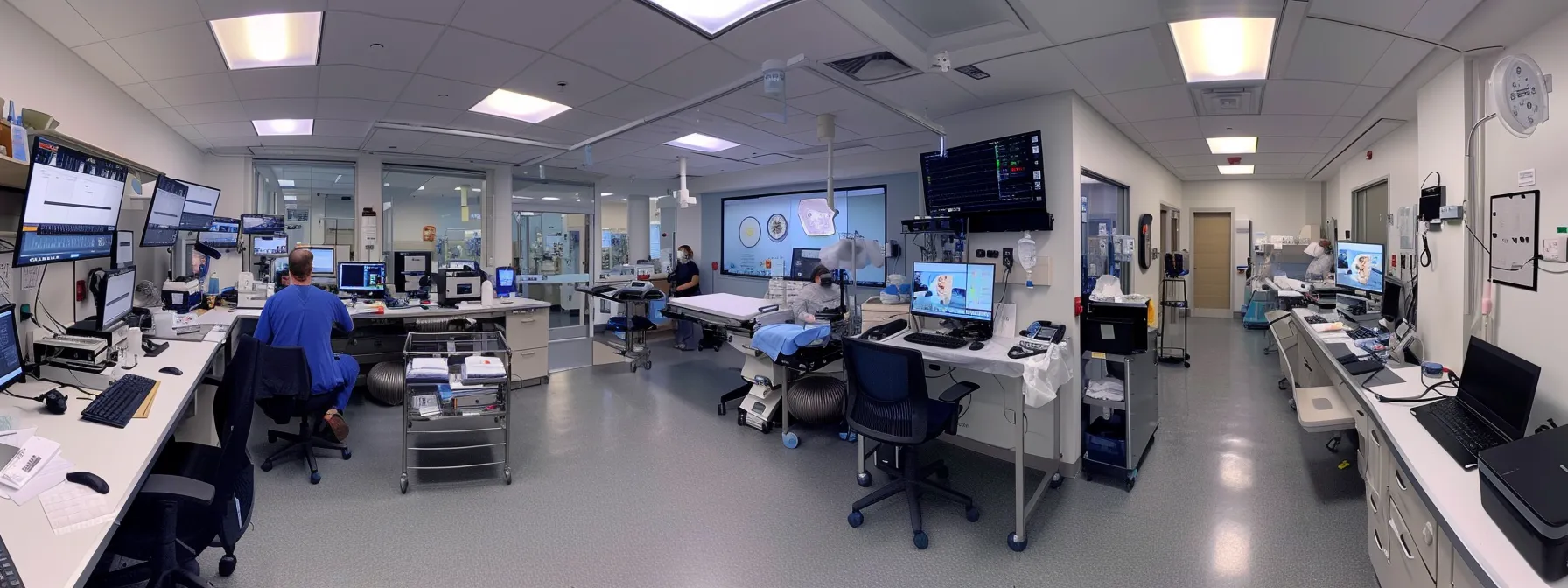Manage Care, Cost, and Risk All in One Place: The Benefits of Surgery Scheduler Software
Advances in healthcare technology are making waves in how medical facilities manage their operations, including the critical aspect of surgery scheduling. Surgery scheduler software offers a plethora of advantages, from increasing efficiency to ensuring patient satisfaction with coordinated care services. These innovative tools streamline the scheduling process and also encompass broader operational management by integrating care coordination, risk mitigation, and cost reduction into one robust platform. If you’re looking to maximize the potential of your medical practice or surgical center, understanding the benefits of such software is paramount. Below, we delve into the transformative impacts surgery scheduler software can have on your healthcare facility.
Unveiling the Advantages of Integrating Surgery Scheduler Software
The integration of surgery scheduler software into healthcare operations brings forth significant advantages. Centralizing scheduling tasks reduces the likelihood of double bookings, ensures optimal use of operating rooms, and boosts overall efficiency. The ripple effect of such improvements often extends to better patient throughput and reduced wait times, which contribute to higher patient satisfaction levels. By streamlining time-consuming manual processes, healthcare staff are freed up to focus on more direct patient care activities.
With a surgery scheduler, healthcare providers have visibility over the entire surgical timeline, from pre-op to post-op. This comprehensive view supports informed decision-making, enabling the proactive management of potential snags in the scheduling process. Additionally, having access to real-time data helps coordinators adapt swiftly to changes, such as emergency surgeries that require immediate resource reallocation.
Streamlining Workflow Efficiency With Advanced Scheduling Capabilities

Efficient workflow is the cornerstone of any successful surgical suite, and advanced scheduling capabilities are at the heart of this efficiency. By implementing surgery scheduler software, healthcare facilities can automate many of the tasks involved in the planning and execution of surgical procedures. This includes not only the scheduling of surgeries themselves but also the coordination of necessary resources, such as surgical teams, equipment, and operating rooms.
The software’s ability to integrate with other hospital systems, like electronic health records (EHRs), further refine workflow efficiency. Instant access to patient records simplifies pre-operative assessments and ensures that necessary information follows the patient throughout every stage of the surgical process. This creates a seamless experience for both patients and staff, reducing errors and saving valuable time.
Reducing Operational Costs Through Optimized Resource Allocation
One of the compelling benefits of surgery scheduler software is its ability to reduce operational costs. Accurate scheduling ensures that resources, including expensive surgical equipment and specialized staff, are utilized to their fullest potential. Overbooking or underusing these resources can result in significant financial loss, but an effective scheduling system can prevent this. By harnessing these powerful tools, hospitals can ensure that resources are allocated sensibly and cost-effectively.
The software also plays a critical role in reducing overtime expenses. With detailed scheduling, staffing can be more precisely managed, aligning personnel availability with the surgical caseload. This precision decreases the likelihood of staff working beyond their scheduled hours, thus controlling labor costs. Additionally, it contributes to a more balanced workload, potentially reducing burnout and staff turnover, which carries its own set of costs.
Mitigating Risks With Robust Data Management and Compliance Features

The integration of robust data management within surgery scheduler software is a substantial asset in mitigating risks. By consolidating patient information and scheduling details in a singular, secure platform, the risk of data breaches and errors is significantly lowered. Enhanced data protection mechanisms also ensure compliance with healthcare regulations like HIPAA, which is imperative to maintain patient trust and avoid costly penalties.
Additionally, these systems frequently include audit trails that track changes and access to sensitive information, providing an added layer of security and accountability. Such features are important when considering the complexity of surgical procedures and the need for precise documentation. They also facilitate an organization’s ability to respond to audits and prove adherence to standard operating procedures.
Altogether, surgery scheduler software stands as a transformative asset for healthcare providers seeking to deliver exceptional care while also managing costs and risks effectively. Overall, these sophisticated systems can lead to leaner operations, improved patient experiences, and optimal outcomes, which position healthcare facilities to thrive in an increasingly competitive healthcare landscape.




